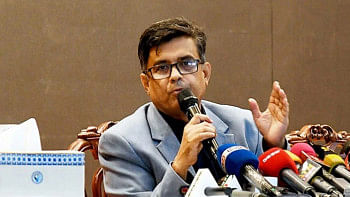Invest in compliance
The shipbreaking industry should improve working conditions at yards by following labour laws, ensuring minimum wages, and training up workers, said rights activists and government officials yesterday.
They also called for a change in the mindset of owners so that they invest to ensure compliance as well as adopt advanced technologies and raise safety awareness among the workers.
“The number of accidents in the shipbreaking sector has risen over the years, so preventive measures are needed,” said Shib Nath Roy, inspector general of the Department of Inspection for Factories and Establishments (DIFE).
“Many industries don’t follow labour laws and safety issues for workers. We are trying to compel them to follow the laws but the labour laws are very weak,” he said.
He said many government agencies are working to ensure decent work in the sector. However, there is a lack of coordination.
Roy was speaking at a roundtable at The Daily Star Centre in Dhaka. The Bangladesh Institute of Labour Studies (BILS) organised the roundtable styled “Ensuring decent work in shipbreaking industry: role of different stakeholders”.
At present, 60-65 ship yards are active in Bangladesh and all of them are based in Chattogram. They bring scrap ships from abroad and break them and sell the scraps to steel millers, according to the BILS.
On an average, they dismantle more than 200 ships every year and meet 60 to 70 percent of the local demand for steels. They add Tk 8,000 crore to the economy.
The yards employ 20,000 to 25,000 workers, of which nearly 2,000 are permanent.
Begum Shaheen Akhter, deputy secretary of the labour and employment ministry, said the shipbreaking industry needs trained labour force and advanced technologies to reduce the number of accidents. “To change the situation, the mindset of owners needs to be changed,” she said, adding that the owners should be aware of the positive side of using advanced technologies.
Akhter also said the environment and the industries ministries need to work together so that owners can’t bring in toxic ships, in order to ensure a decent workplace.
AM Nazimuddin, president of the Bangladesh Metal Federation, said workers are neglected in the sector and they become unproductive after spending 10-15 years.
So, their wage should be higher, but no yards follow the minimum wage of Tk 16,000, he said.
Tapan Dutta, convener of the Shipbreaking Workers’ Trade Union Forum, said powerful and healthy trade unions can play a vital role in ensuring safety and decent workplace.
However, there is some legal obstacles to forming trade unions and getting registration for them, he added.
Pahari Bhattacharjee, a senior official of the BILS, said most of the workers do not get appointment letter, are forced to work 12-hour shift seven days a week, and work both shifts, day and night. Only permanent workers, who are not involved in breaking ships directly, enjoy weekend.
Union activities are limited and most of the workers are contractual, he said, while presenting a paper.
“The government should have a specific development plan for the sector and follow it,” he recommended.
Md Al Amin, deputy inspector general of the DIFE, said industries still break ships manually but they need to introduce advanced technology.
Another problem is untrained workforce and if they are trained, the frequency of accidents would go down, he said, adding that owners of shipbreaking industries don’t want to invest in compliance, but they should be made aware of the long-term benefits of following rules and regulations.
The DIFE has filed many cases against industrial units, Amin said. But the labour laws are weak and sometimes, a fine of only Tk 3,000 to Tk 4,000 is slapped on the owners.
“This is a very small amount,” he said.
The discussants called for profit-sharing. With the fund, a central welfare fund can be formed for the welbeing of the workers.
They also emphasised ensuring group insurance, setting up a model shipyard, and making mandatory the use of personal protective equipment for workers.
Shah Mohd Abu Zafar, advisory council member of the BILS, chaired the event.

 For all latest news, follow The Daily Star's Google News channel.
For all latest news, follow The Daily Star's Google News channel. 



Comments